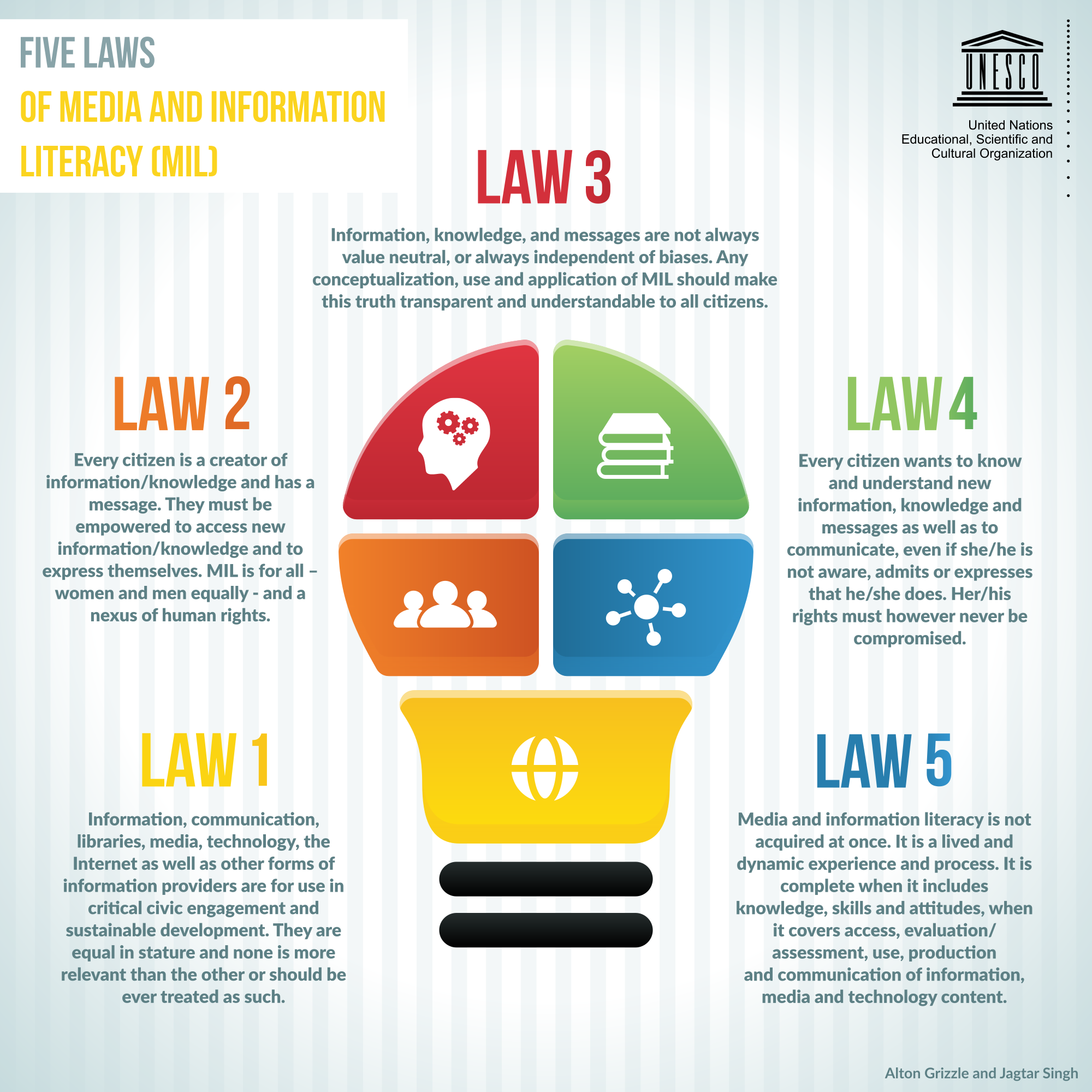
UNESCO Launches Five Laws of Media and Information Literacy (MIL)
This week UNESCO launched a framework illustrating its Five Laws of Media and Information Literacy (MIL).
This global strategy marries the large, but often separated, disciplines of information literacy and media literacy and creates a common vocabulary for folks in multiple areas of knowledge to engage in conversation. It also positions these critical literacies as a combined set of competencies–knowledge, skills and attitudes–central for living and working in our world today.
The UNESCO announcement explains the rationale behind the new framework:
Empowerment of people through Media and Information Literacy (MIL) is an important prerequisite for fostering equitable access to information and knowledge and promoting free, independent and pluralistic media and information systems.
Media and Information Literacy recognizes the primary role of information and media in our everyday lives. It lies at the core of freedom of expression and information – since it empowers citizens to understand the functions of media and other information providers, to critically evaluate their content, and to make informed decisions as users and producer of information and media content.
In essence of course, the 5 Laws focus on competencies that address knowledge in all formats and resonate with our own professional values and standards. In summary they assert: (1) information/media are critical to civic engagement and sustainable development and equally relevant in all forms; (2) every citizen is a creator of information/knowledge; (3) information/media messages are not always value neutral and truth should be made understandable; (4) every citizen has a right to access and understand new information/knowledge/messages; (5) media/information literacy is acquired as a process.
UNESCO plans to focus on preparing teachers to better understand and integrate MIL into teaching and learning by providing appropriate pedagogical methods, curricula and resources.
The graphic is available at the UNESCO site in English, French, Spanish, Chinese and Portuguese.
(Librarians may hear some echoes of another set of Five Laws.)
RELATED
The job outlook in 2030: Librarians will be in demand
The job outlook in 2030: Librarians will be in demand
ALREADY A SUBSCRIBER? LOG IN
We are currently offering this content for free. Sign up now to activate your personal profile, where you can save articles for future viewing






Add Comment :-
Be the first reader to comment.
Comment Policy:
Comment should not be empty !!!